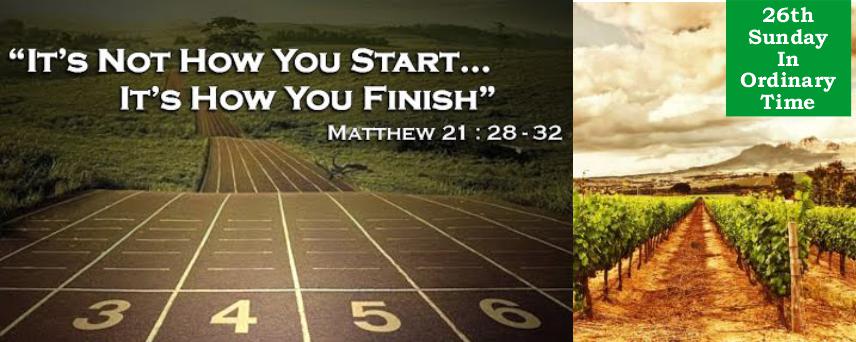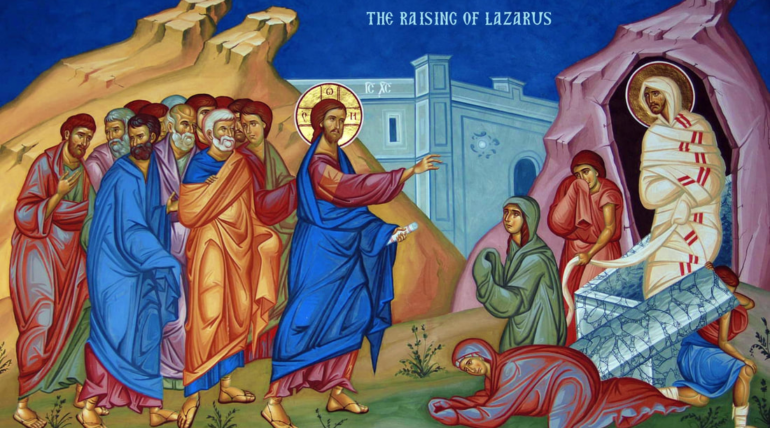26th SUNDAY A
The parable of the two sons is a conversion story. Jesus used the story to highlight the hypocrisy of the scribes and Pharisees. He wanted to expose their attitude to God’s covenant as empty outward show bereft of any substance. It was most important in that culture at that time to appear to honour one’s parents, the eighth commandment. To shame one’s parents in the ever-noticing eyes of extended family and neighbours was not acceptable. In the parable, the son who said ‘yes’ pleased everyone but he was a symbol of the scribes and Pharisees while the other son, who initially said ‘no’ but eventually complied, was a type of tax collectors and sinners who ignored God and religion but eventually converted.
This invitation to conversion is not so much to a change of behaviour as such but involves an internal resolution that satisfies a void in the heart. The call of Jesus to follow him is addressed to all of us. If we are listening, we will hear it. It may not come in early life, but often is heard only later. The call moves from the mind to the heart and eventually to one’s whole life. It is an invitation to begin to think and see as Jesus does. It entails an entire reworking of oneself into the pattern of Christ. It’s taking on board and working through the question Jesus asked Simon Peter: “Who do you say I am?” This was a central question in the early church and around it was eventually formulated the Nicene Creed.
Those who have gone through a profound conversion in their lives talk about the ‘reality’ that Christ is for them. From Paul of Tarsus to Thomas Aquinas, Edith Stein, C.S. Lewis, Thomas Merton, Dorothy Day and others, all tended to speak of their former lives as a kind of illusion, something not entirely real. French philosopher and historian Etienne Gilson described the unconverted life as ‘a land of unreality.’ The blind man in Jericho left his earthly possessions (his begging cloak) behind him when he encountered Jesus and followed him “along the road” to Jerusalem. Peter, Andrew, James and John left their boats and their nets and followed him. The sinful woman of Samaria abandoned her water jar, symbol of her former life, and invited people to come and meet Jesus. The father of the prodigal son described his conversion as “this son of mine was dead and has come back to life again.”
Jesus asked Peter – ‘Who do you say that I am?’ at just the same moment that he reveals the journey on which he is embarking, to Jerusalem, to suffer, die and rise. Peter identified Jesus properly, theologically speaking, but did not grasp the meaning of what he said: “You are the Messiah, the Son of the Living God”. Peter and the others only discovered him as they travelled with him on the journey. Maybe this is true of many of us. To know and love someone is more than to grasp facts about them, or recognise their qualities. It is to have an inner sense of the reality and depth of the journey they share, the hunger that’s in their hearts, and the feel of being on a journey towards the fullness of life in God. “Being a Christian is not the result of an ethical choice or lofty idea, but the encounter with an event, a person, which gives life a new horizon and a decisive direction” – POPE FRANCIS, The Joy of the Gospel.
Fr. QQ – 09/28/2023
The real voyage of discovery is not seeking new places but having new eyes. – Marcel Proust.




